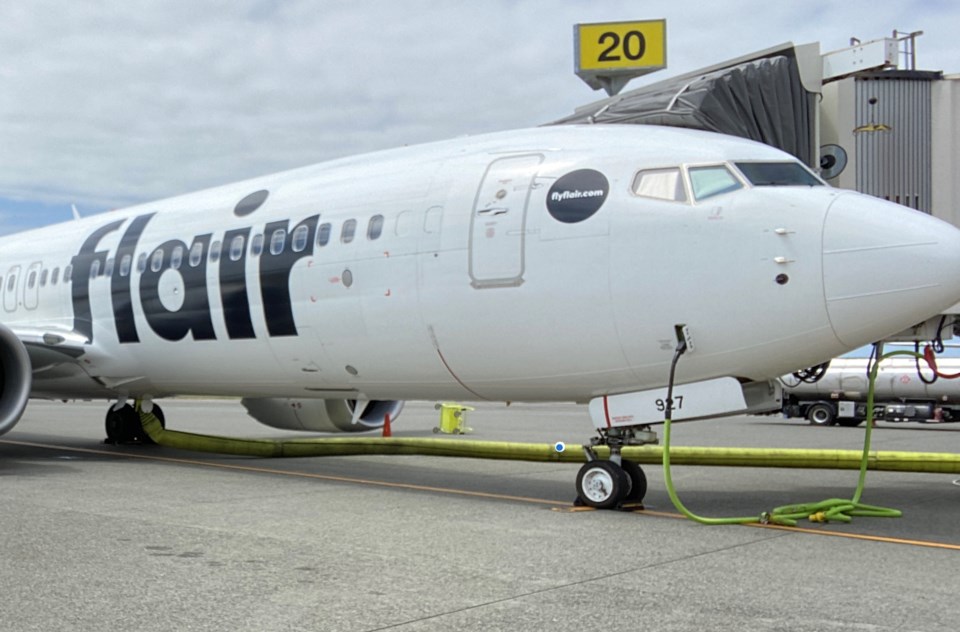Flair Airlines is the latest airline to be sued by a customer who has alleged being served a liquid that was at “too high a temperature,” and later caused burns.
Coquitlam-based passenger Alisa Pradhan alleges that she was on a Flair Airlines flight between Â鶹´«Ã½Ó³»and San Francisco in late August 2022 when she was served a meal that included a “hot liquid,” according to a notice of civil claim filed at BC Supreme Court yesterday (Aug. 29).
“Pradhan received burns on her left leg and ankle because the hot liquid spilled, due to turbulence,” she alleged in her lawsuit, which seeks an unspecified amount of money in damages.
She claims that Flair Airlines was negligent for not taking reasonable care to ensure that she was safe while on the aircraft and that the airline did not make her aware of the hazards in her meal.
Flair Airlines’ vice-president of revenue, Eric Tanner told BIV this afternoon that while the issue is a “hot topic,” he would not comment on the lawsuit because the matter is before the court. Flair Airlines has not yet filed a response to Pradhan's notice of civil claim. None of Pradhan's allegations has been proven in court.
Earlier this month, because worsening turbulence has made the meal a danger to passengers.
This summer, which she said spilled, causing “disfiguring burns.” That passenger, Tahjana Lewis, is seeking US$1.5 million in damages, according to USA Today.
Lawsuits for spilled hot liquids became more common after a landmark case more than 30 years ago.
Plaintiff Stella Liebeck created a media sensation in the early 1990s, when she sued McDonald's Corp. for gross negligence because its coffee was served too hot.
She won a multi-million dollar settlement in 1994: US$2.7 million in punitive damages and $160,000 in net compensatory damages to cover medical expenses.
The trial judge reduced her punitive-damage award to US$640,000, and the litigants settled for a confidential amount before an appeal was decided.
Liebeck's case prompted some in legal circles to debate the need for tort reform. It also spawned the 2011 documentary Hot Coffee.
Her case may have also inspired two 1995 episodes of Seinfeld: one where the character Kramer tries to smuggle coffee into a movie theatre by hiding a cup under his shirt, thereby scalding himself; another when he sues the fictitious coffee chain Java World for having coffee that was too hot.
Indeed, B.C. courts regularly process lawsuits from individuals alleging burns from hot liquids.
for an alleged incident where she ordered coffee at a drive-thru location. After an employee handed her the coffee, the lid allegedly came off, burning Nedila.
Fred Kozak filed a lawsuit Aug. 14 against McDonald’s Restaurants of Canada Ltd. for a similar situation, where he claimed that he was in a drive-thru and the McDonald’s employee allegedly spilled coffee on him.
BIV asked McDonald’s Restaurants of Canada Ltd. for a comment on these cases but did not immediately hear back.
Pradhan’s lawyer, Warnett Hallen LLP partner Paul Warnett, declined to comment on the lawsuit against Flair Airlines or about how lawsuits that allege hot liquids have caused burns tend to get resolved. Other lawyers who have recently handled lawsuits that involved spilled hot liquids did not respond this afternoon to BIV's requests for an interview.



